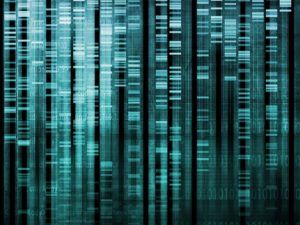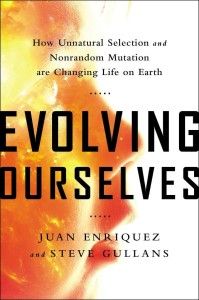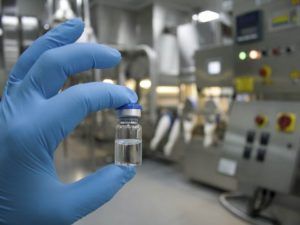Tag: genetics


Bioquark Inc. and Lakmus LLC Announce Research Collaboration to Study Novel Biopharmaceuticals for Healthy Longevity Enhancement
Philadelphia, PA, USA / Moscow, Russia — Bioquark, Inc., (www.bioquark.com) a life sciences company focused on the development of novel bio-products for regeneration, disease reversion, and healthy aging, and Moscow based, Lakmus LLC, a diversified investment company with business interests in pharmacies, restaurants, and real estate, announced a multi-disciplinary research collaboration with the FSBI Zakusov Institute of Pharmacology, Russian Academy of Medical Sciences (http://www.academpharm.ru/), and the Pavlov Institute of Physiology of the Russian Academy of Sciences (http://www.infran.ru/), to jointly study the pharmacotherapeutic longevity enhancement properties of its combinatorial regenerative biologic candidates.
“We are very excited about this continued collaboration with Lakmus,” said Ira S. Pastor, CEO, Bioquark Inc. “The disciplined development of our combinatorial biologic candidates (Bioquantines) for healthy longevity enhancement, represents another important step in our continued evolution as a company focused on a broad range of therapeutic products and services in the regenerative healthcare space.”
Throughout the 20th century, natural products formed the basis for a majority of all pharmaceuticals, biologics, and consumer healthcare products used by patients around the globe, generating trillions of dollars of wealth. However, many scientists believe we have only touched the surface with what the natural world, and its range of organisms, which from a health and wellness perspective are much further advanced than human beings, has to teach us.
The integration of a complex set of newer research disciplines, including interkingdom signaling, semiochemical communication, and evolutionary biology, as well as significant recent activity in the areas of the microbiome, are highlighting a myriad of new ways that non-human bio-products can affect the human genome for positive transitions in health and wellness dynamics.
“Bioquark has spent several years studying the natural ability of many species to turn back biological time in order to maintain health, fitness, and survival, developing a broad understanding of the combinatorial biochemical approaches they use to control nested hierarchies of disease (i.e. gene, cell, tissue, organism, environment),” said Dr. Sergei Paylian, Founder, CSO, and President, Bioquark Inc. “This research initiative is one more step in the path in allowing humans to recapture these capabilities to effectively counter our unfortunate progression into aging, disease and degeneration.”
About Bioquark, Inc.
Bioquark Inc. is focused on the development of natural biologic based products, services, and technologies, with the goal of curing a wide range of diseases, as well as effecting complex regeneration. Bioquark is developing both biological pharmaceutical candidates, as well as products for the global consumer health and wellness market segments.

How Technology Changes the Way We Diagnose and Treat Mental Illness
As recently as 50 years ago, psychiatry lacked a scientific foundation, the medical community considered mental illness a disorder of the mind, and mental patients were literally written off as “sick in the head.” A fortunate turn in progress has yielded today’s modern imaging devices, which allow neuroscientists and psychiatrists to examine the brain of an individual suffering from a mental disorder and provide the best treatment options. In a recent interview, Columbia University Psychiatry Chair Dr. Jeffrey Lieberman stated that new research into understanding the mind is growing at an accelerated pace.
(iStock)
Lieberman noted that, just as Galileo couldn’t prove heliocentrism until he had a telescope, psychiatry lacked the technological sophistication, tools, and instruments necessary to get an understanding of the brain until the 1950s. It wasn’t until the advent of psychopharmacology and neuroimaging, he said, that researchers could look inside the so-called black box that is the brain.
“(It began with) the CAT scan, magnetic resonance imaging (MRI) systems, positron emission tomography (PET scans) and then molecular genetics. Most recently, the burgeoning discipline of neuroscience and all of the methods within, beginning with molecular biology and progressing to optogenetics, this capacity has given researchers the ability to deconstruct the brain, understand its integral components, its mechanisms of action and how they underpin mental function and behavior,” Lieberman said. “The momentum that has built is almost like Moore’s law with computer chips, (and) you see this increasing power occurring with exponential sort of growth.”
Specifically, the use of MRIs and PET scans has allowed researchers to study the actual functional activity of different circuits and regions of the brain, Lieberman noted. Further, PET scans provided a look at the chemistry of the brain, which has allowed for the development of more sophisticated pathological theories. These measures, he said, were used to develop treatments while also allowing measurement of the effectiveness of both medication-based therapies and psychotherapies.
As an example, Lieberman cited the use of imaging in the treatment of post-traumatic stress disorder (PTSD). The disorder, a hyperarousal that chronically persists even in the absence of threatening stimulation, is treated through a method called desensitization. Over time, researchers have been able to fine-tune the desensitization therapies and treatments by accessing electronic images of the brain, which can show if there’s been a reduction in the activation of the affected amygdala.
Lieberman noted that despite progress in this area, technology has not replaced interaction with the individual patient; however, as technology continues to evolve, he expects the diagnoses of mental disorders to be refined.
“By the use of different technologies including genetics (and) imaging, including electrophysiological assessments, which are kind of EEG based, what we’ll have is one test that can confirm conditions that were previously defined by clinical description of systems,” Lieberman said. “I think, of all the disciplines that will do this, genetics will be the most informative.”
Just as genetics is currently used to diagnose cancer using anatomy and histology, Lieberman said the expanding field is helping researchers distinguish mental illness in individuals with certain genetic mutations. He expects that in the future, doctors will use “biochips” to routinely screen patients and provide a targeted therapy against the gene or gene product. These chips will have panels of genes known to be potentially associated with the risk for mental illness.
“Someone used the analogy of saying the way we treat depression now is as if you needed to put coolant into your car. Instead of putting it into the radiator, you just dump it on the engine,” he said. “So genetics will probably be the most powerful method to really tailor to the individual and use this technique of precision and personalized medicine.”
Lieberman also sees additional promise in magnetic stimulation, deep brain stimulation through the surgical implanting of electrodes, and optogenetics. Though he has plenty of optimism for these treatments and other potential treatments for mental illness, much of their continued growth may hinge on government policy and budgets. Recent coverage of gun violence in the United States, and a public call for better means by which to screen individuals for mental health inflictions, may be an unfortunate catalyst in moving funding forward in this research arena. A recent article from the UK’s Telegraph discusses Google’s newfound interest in this research, with former US Head of the National Institute of Mental Health now in a position at Google Life Sciences.
“Science, technology and healthcare are doing very well, but when it comes to the governmental process, I think we’re in trouble,” he said. “A welcome development in this regard is President Obama’s Human Brain Initiative, which if you look at the description of it, (is) basically to develop new tools in neurotechnology that can really move forward in a powerful way of being able to measure the function of the brain. Not by single cells or single circuits, but by thousands or tens of thousands of cells and multiple circuits simultaneously. That’s what we need.”

Can We Evolve Ourselves To Expand Beyond Human Potential?
At one time or another, we’ve all been encouraged to “maximize our potential.” In a recent interview, Academic and Entrepreneur Juan Enriquez said that mankind is making progress toward expanding beyond its potential. And the changes, he believes, could be profound.
To illustrate the process, Enriquez theorized what might happen if we were to bring Charles Darwin back to life and drop him in the middle of Trafalgar Square. As Darwin takes out his notebook and starts observing, Enriquez suggested he would likely see what might appear to be a different species. Since Darwin’s time, humans have grown taller, and with 1.5 billion obese people, larger. Darwin might also notice some other features too that many of us take for granted — there are more senior citizens, more people with all their teeth, a lot fewer wrinkles, and even some 70-year-olds running in marathons.
“There’s a whole series of morphologies that are just different about our bodies, but we don’t notice it. We don’t notice we’ve doubled the lifespan of humans in the last century,” Enriquez said. “We don’t notice how many more informations (sic) come into a brain in a single day versus what used to come in in a lifetime. So, across almost every part of humanity, there have been huge changes.”
Part of the difference that Darwin would see, Enriquez noted, is that natural selection no longer applies as strongly to life and death as it once did. Further, random gene mutations that led to some advantages kept getting passed down to generations and became part of the species. The largest difference, however, is our ongoing move toward intelligent design, he said.
“We’re getting to the stage where we want to tinker with humans. We want to insert this gene so this person doesn’t get a deadly disease. We want to insert this gene so that maybe the person performs better on an 8,000 meter peak climb, or in sports, or in beauty, or in different characteristics,” Enriquez said. “Those are questions we never used to have to face before because there was one way of having sex and now there’s at least 17.”
According to Enriquez, the concept of evolving ourselves is an important one because we are the first and only species on earth that has deliberately taken control over the pattern of evolution of what lives and dies (Science Magazine seems to agree). The technologies we’re developing now towards this goal provide us with an instrument for the a potential longer survival of the species than might otherwise be possible.
Those notions, however, raise a number of moral and ethical questions. “What is humanity…where do we want to take it?” Enriquez poses. While he noted that it’s easy to project that tinkering with humanity will lead to a dystopic future, he remains cautiously optimistic about our potential.
“I think we’ve become a much more domesticated species. We’re far less likely to murder each other than we were 50 years ago, 100 years ago or 200 years ago. We have learned how to live together in absolutely massive cities,” Enriquez said. “I think we have become far more tolerant of other religions (and) other races. There are places where this hasn’t happened but, on the whole, life has gotten a whole lot better in the last two or three hundred years and as you’re looking at that, I think we will have the tolerance for different choices made with these very instruments, and I think that’s a good thing.”
As he looks at the future of evolving humanity, Enriquez sees reasons for a great deal of optimism in the realm of single gene modification, especially in the area of eradicating disease and inherited conditions. The consequences, however, are still an unknown.
“In the UK, there was a question, ‘Do we insert gene code into a fertilized egg to cure a deadly disease?’ That is a real question, because that would keep these babies from dying early from these horrendous diseases,” Enriquez said. “The consequences of that are, for the first time, probably in the next year, you’ll have the first child born to three genetic parents.”
The path toward evolving human intelligence in the near future isn’t as cut and dry, Enriquez said. Once we establish the implications and morality between governments, religious organizations, and the scientific community, there are still plenty of hurdles to clear.
“There have been massive studies in China and we haven’t yet identified genes correlated to intelligence, even though we believe intelligence has significant inherited capacity,” Enriquez said. “I think you have to separate reality from fiction. The ability to insert a gene or two, and really modify the intelligence of human beings, I think, is highly unlikely in the next decade or two decades.”

